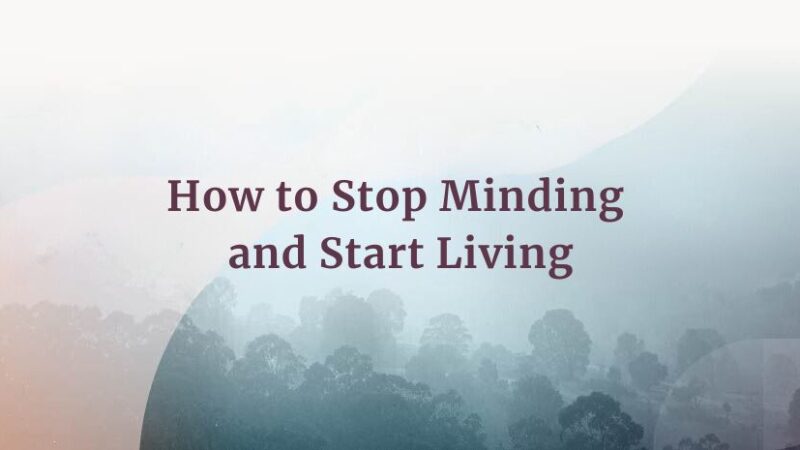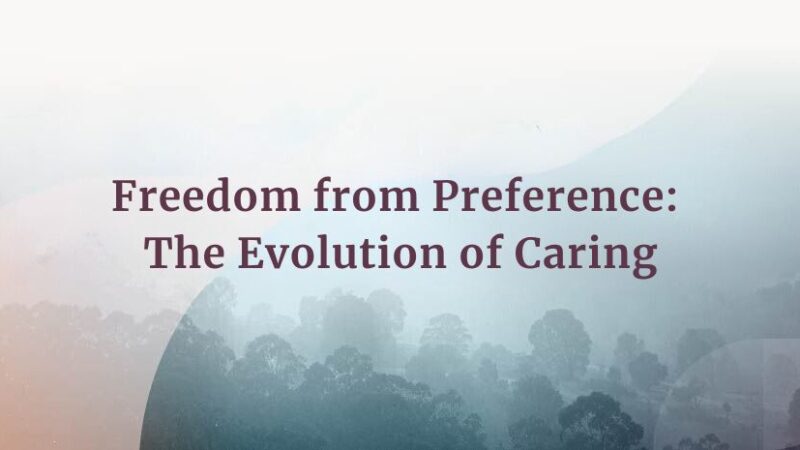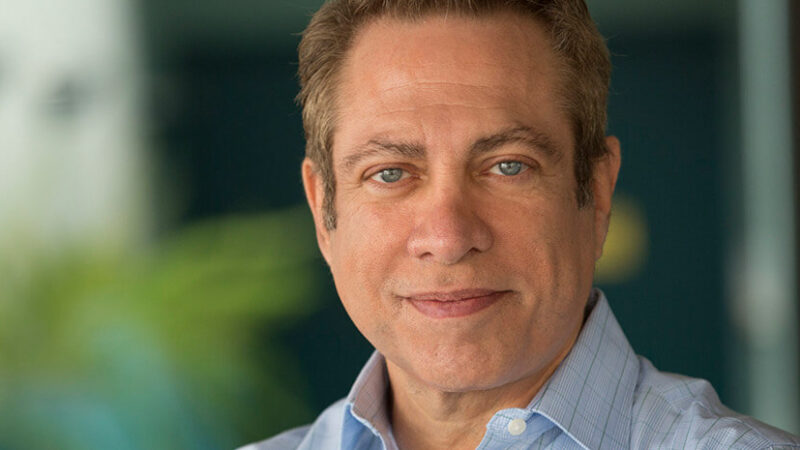-
E117: The Real Work: Letting Go from Within
Michael Singer — October 2, 2025
True spirituality isn’t about mystical experiences or lofty ideals—it’s about honestly facing...
-
Once More: Reflections on Reincarnation and the Gap Between Lives
Tami Simon — September 26, 2025
In this special reflection episode of Insights at the Edge host Tami Simon looks back on her...
-
Honey Tasting Meditation: Build Your Relationship with Sweetness
There is a saying that goes “hurt people hurt people.” I believe this to be true. We have been...
Written by:
Amy Burtaine, Michelle Cassandra Johnson
-
Many Voices, One Journey
The Sounds True Blog
Insights, reflections, and practices from Sounds True teachers, authors, staff, and more. Have a look—to find some inspiration and wisdom for uplifting your day.
Standing Together, and Stepping Up
Written By:
Tami Simon -
The Michael Singer Podcast
Your Highest Intention: Self-Realization
Michael Singer discusses intention—"perhaps the deepest thing we can talk about"—and the path to self-realization.
This Week:
E116: Doing the Best You Can: The Path to Liberation -
Many Voices, One Journey
The Sounds True Blog
Insights, reflections, and practices from Sounds True teachers, authors, staff, and more. Have a look—to find some inspiration and wisdom for uplifting your day.
Take Your Inner Child on Playdates
Written By:
Megan Sherer
600 Podcasts and Counting...
Subscribe to Insights at the Edge to hear all of Tami's interviews (transcripts available, too!), featuring Eckhart Tolle, Caroline Myss, Tara Brach, Jack Kornfield, Adyashanti, and many more.
Most Recent
E90: How to Stop Minding and Start Living
“Do you mind?” We “mind” everything, from traffic to childhood memories, and this habitual minding creates endless mental ripples that disturb our peace. Spiritual growth is not found through adding practices but through subtracting resistance, through relaxing and letting go of what disturbs us. Every moment becomes an opportunity to free ourselves by choosing not to mind, and over time this unlocks profound freedom and transformation.
© Sounds True Inc. Episodes: © 2025 Michael A. Singer. All Rights Reserved.
E89: Freedom from Preference: The Evolution of Caring
The ego often says “I don’t care” as a defense mechanism to avoid pain or disappointment. Truly not caring isn’t about becoming indifferent, but about genuinely letting go of the need for things to be a certain way. When we stop resisting life and release our inner preferences, we experience a peaceful state where nothing has to change for us to be OK.
For more information, go to michaelsingerpodcast.com.
© Sounds True Inc. Episodes: © 2025 Michael A. Singer. All Rights Reserved.
Caroline Myss: From the Love of Power to the Power of ...
Few luminaries in modern times have opened the doors to the spiritual dimensions of who we are, why we are here, and how we heal and evolve more profoundly than Caroline Myss. In this podcast, Tami Simon speaks with the longtime Sounds True author and renowned medical intuitive about her new online program, The Way of Guardians and Grace, where Caroline shares for the first time an intimate account of her relationship with unseen allies and the energetic realms they opened to her.
Listen now as the inimitable Caroline Myss tells us how these turning-point events in her life can inform your own greater path and calling. She and Tami discuss and illuminate: accessing our latent mystical intelligence; forging a partnership with the Divine; how your biography becomes your biology; life—a sacred spiritual adventure; wisdom, faith, love, and light; shifting from the love of power to the power of love; humanity’s collective shadow at this time; cultivating a high-voltage moral conscience; making grace-filled choices; what to pray for (and what not to); turning on your light in service of the world—and keeping it on; and more.
Note: This episode originally aired on Sounds True One, where these special episodes of Insights at the Edge are available to watch live on video and with exclusive access to Q&As with our guests. Learn more at join.soundstrue.com.
Customer Favorites
5 Types of Imbalance: A Guide to Illness from a Shaman...
Shamanism views illness as an energetic imbalance of some sort—either something is there that shouldn’t be, or something should be there that isn’t.
Gabor Maté: Healing into Wholeness in a Toxic Culture
Celebrated author and physician Dr. Gabor Maté has become one of the world’s foremost voices on the journey of healing from trauma—in large part because it is a path he walks himself. In this podcast, Tami Simon speaks with Dr. Maté about his new book, The Myth of Normal, sharing breakthrough insights into the nature of trauma and some of the necessary steps for our personal and collective recovery.
Give a listen as Tami and Dr. Maté discuss the truth of our interconnectedness; disease as a process, not a distinct entity; self-compassion and honoring our suffering; an inquiry practice—the happy childhood challenge; the emotional work that healing requires; the concepts of wholeness and recovery; the essence of trauma—disconnection from the Self; experiencing your own natural goodness; psychedelics and the veil between the conscious and the unconscious; closing the gap between science and the practice of medicine; learning how to say no before your body does; and more.
This episode first aired live and on video on Sounds True One. To watch Insights at the Edge episodes live and on video, and to access additional bonus Q&A, please visit join.soundstrue.com to learn more.
Finding Meaning in Our Grief
David Kessler is widely considered the world’s foremost expert on grief and loss. He is the author of six books, including the new bestseller Finding Meaning: The Sixth Stage of Grief, and the founder of grief.com, which has more than five million visits annually from people in almost 170 countries. David has taught physicians, nurses, counselors, police, and first responders about the end of life, trauma, and grief. He facilitates talks, workshops, and retreats for those experiencing grief, and his experience with thousands of people on the edge of life and death has taught him secrets to living a happy and fulfilled life, even after tragedy.
In this podcast, Sounds True founder Tami Simon speaks with David Kessler about his new book, including how our relationships transcend death and how we can all continue to love and cherish those we’ve lost. They also discuss David’s friendship and work with Elisabeth Kübler-Ross; misconceptions about the five stages of grief; finding meaning as the sixth stage of grief; why all grief does not have trauma, but all trauma has grief; making the decision to participate in life after loss; the importance of telling our stories, and why our grief must be witnessed in order to be healed; creating a grief-literate society; why “what we avoid pursues us, what we face transforms us”; how our lost loved ones can move forward with us in life; being with and there for someone in grief; our “continuing bonds” with those we’ve lost, and how death can never end our relationships; and more.






